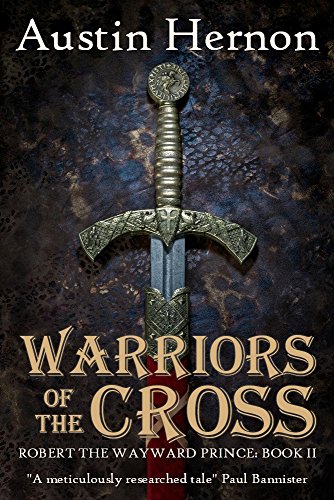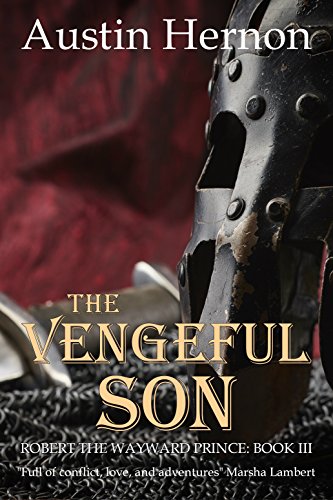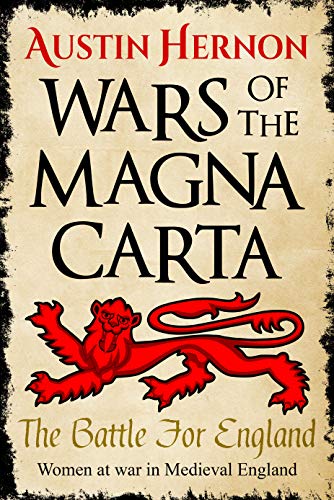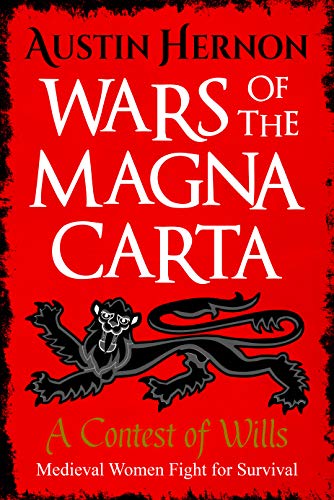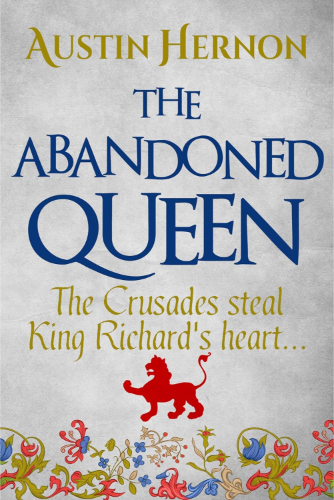
The Wayward Prince


Authors

All Ages!

All Ages!
FAKE NEWS
NOTHING NEW ABOUT THAT, HISTORIANS AND HISTORICAL NOVELISTS HAVE BEEN DEALING WITH IT SINCE THE FIRST PEN SCRATCHED THE FIRST CLAY TABLET.
William the Conqueror had a son, named Robert, but he has been dismissed as, ‘just Robert,’ and named Curthose by his father due to his short legs, but that’s as maybe, Robert didn’t much like his father in return. But why is Robert diminished by historians, his life had value and if, only if, one studies it in some detail, the real story of Robert emerges from the fog of mis-reporting – or as we know it today, ‘Fake news.’
Thus authors of historical fiction have had some difficulties in their efforts to distinguish between truth and propaganda
I found this to be the case when carrying out the research for the Wayward Prince trilogy – In researching the life story of Robert of Normandy it soon became obvious that attempts had been made to marginalise his achievements and concentrate on his shortcomings.
An examination of the chroniclers themselves became the priority, and several aspects which called their accuracy into question came to light.
In the period, 11th _13th century, the chronicles were penned by monks, in Latin, loaded with misogyny and written to order, so usually from the viewpoint of either the victor or the church, or created for some other political purpose. Recognising those important facts is something I’ve kept in mind as I’ve written these novels.
My books are as near to the truth as it’s possible to get. Research is cross-checked with as many sources, both contemporary and secondary, as I can discover.
The facts remain milestones while the stories in-between will always be the results of credible speculation, combined with the author’s own lifetime experiences, and the art of the possible – or even the probable.
Adventures – romances – political intrigues and family treacheries – battles won and battles lost – lives lived and lives sacrificed – all become more interesting when they are soundly based on fact, and are better stories because of it.
Often they were stories handed down, conforming to popular legend and myth, and not often written by direct witnesses, and so to view them as ‘the historical truth’ might be to give them a veracity that they do not deserve.
Nevertheless, they provide the novelist with access to a flavour, an atmosphere, that can be just as important to the success of a story as the facts.
Stay in Touch with Our Updates
PUBLISHED TITLES
Robert the Wayward Prince - Trilogy - Full blooded and explicit.
Book one: The Wayward Prince. Scoffed at by his father for his stature, but used by him for his diplomatic skills, Robert generally carves out his own path in life.
Book Two: The Warriors of the Cross. Robert’s supreme skill as a cavalryman leader are needed as he battles successfully with the Islamic opponents of the First Crusade. Without Robert’s success in battle the crusade would have foundered in the bloody sands of Palestine
Book Three: The Vengeful Son. Betrayed and incarcerated by his treacherous brother, Henry, Robert’s son William Clito takes up the mantle of revenge.
The Wars of Magna Carta - Duology - Two women fight for their rights in the turbulence of King John's repudiation of the 1215 Magan Carta.
Book One: The Battle for England. Nicholaa of Lincoln and Matilda of Laxton combine to repel the French led rebellion after King John’s disastrous rule and death. Without these valiant women and their successful defence of Lincoln castle, all England would have been French speaking today.
Book Two: A contest of Wills. Medieval women fight for their rights against the misogyny
of the times, but both these brave souls are confirmed in their appointments by three kings, King Richard I, King John, and King Henry III.
Queen Berengaria of England - Trilogy - A marriage of inconvenience.
Book One: The Lionheart’s Bride. Chosen by Eleanor of Aquitaine as her son, Richard’s bride as he set of to join the third Crusade, Berengaria has to endure a frantic gallop through Europe to catch up with Richard in the straits of Messina. The marriage is postponed because of the ban on marriage during the Lenten period, Berengaria is despatched to Palestine in a separate ship which then is shipwrecked off the coast of Cyprus. The pair then marry in Limassol and set off more more bloody adventures at sea before landing in the middle of the siege of Acre.
Book Two: The Abandoned Queen. After a disappointing wedding night Berengaria hopes in vain for her warrior husband to come to her side, but Richard wants blood in this cruel war of beliefs. Will romance come to her aid?
Book Three: An Empire Lost. Richard and his new queen return to Europe separately, only for Richard to be captured by one of the many enemies he has made in Palestine. How will Berengaria survive as a queen without a king. See how she blossoms as a diplomat and captures hearts and money to free her indifferent husband.
Book!
Robert The Wayward Prince - Trilogy
The little told story of William the Conqueror’s eldest son, Robert, Duke of Normandy.
A man who trod his own path in life, unmoved by his father’s dislike of his stature, Robert was nevertheless an attractive man with a ready access to adventurous women. His prowess as a cavalryman was proven when he unhorsed his father in combat and later went on to become one of the foremost generals in the First Crusade, without Robert’s skill and determination the First Crusade would have undoubtably fallen into disarray and failed.
A remarkable life of conflict and romance lived to the full, his effigy sits proudly in Gloucester cathedral to this day.
The Wars of Magna Carta - Duology
In the period of the 13th century the Forests of England were governed by royal appointments known as :The Keepers of the Kings Forest.
These appointments were often hereditary and passed down to the eldest child of the holders.
A forest was not necessarily all trees, but could be any tract of land designated by royal decree as, ‘Forest.’
During the period of the 1215 Magna Carta the Forest known as Sherwood, in Nottinghamshire, and the Forests of Lincolnshire. were governed by Keepers living in Laxton (North Nottinghamshire) and Lincoln Castle.
The Keeper living in Laxton castle was named, Matilda, and the Keeper in Lincoln castle was named, Nicholaa.
By coincidence both women had inherited their father’s appointments at the same time and both women were confirmed in their roles by three different kings. Richard I, King John, and King Henry III.
Heroines of their time, yet Matilda in particular has been pushed to one side by a fictitious character invented by Sir Walter Scott in his 19th century novel, ‘Ivanhoe.’
These brave women deserve a better place in history. Truth over invention, skirts over Lincoln green tights.
The LIonheart's Bride - Trilogy
A heroine of history, Princess Berengaria of Navarre is taken from her homeland by the persuasive Eleanor of Aquitaine to marry her Crusade-bound son, Richard I, King of England, trying to catch and marry him turned out to be an unexpected adventure.
Shipwreck, and a attempted abduction are only a preamble to a disappointing wedding night, and worse is to come.
A sea battle, a bloody siege, a slaughter, and a husband more passionate about killing than married life sends the new Queen of England off to carve out a destiny of her own making.
Berengaria proves to be her own diplomatic champion and succeeds, despite the odds, to achieve the status of heroine, which she fully deserves.
In Preparation
The story of King Hemry III - Crowned king aged Nine - How will he survive in this brutal age?




